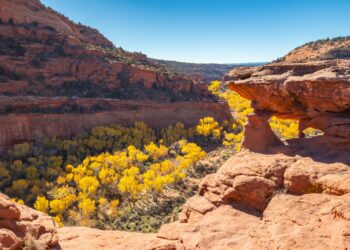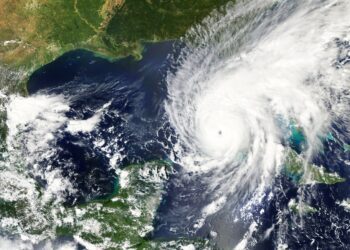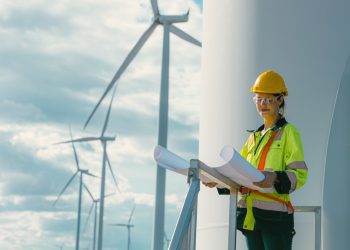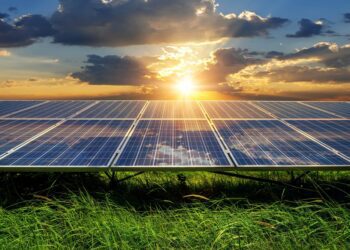Millions of people awoke this week to hazy skies and a dim red sun, its light filtered through smoke released by one of Canada’s worst, and earliest, wildfire seasons on record. More than 400 fires are currently burning in the country, leading to smoke conditions across Canada and in much of the US.
As of Wednesday afternoon, New York City had some of the worst air pollution of any city in the world.
Wildfire exposure is bad for the human body no matter how healthy a person is or how long they’re exposed to it, and public health officials across the US and Canada are urging people to take precautions. “Wildfire smoke absolutely puts your health at risk,” said Kimberly Humphrey, an emergency physician from Australia who is now a climate change and human health fellow at Harvard University.
That risk is increasing as climate change makes wildfires more extreme and more frequent. One study published this year in the journal Environmental Research Letters found that 37% of forest areas burned in the western US and southwestern Canada could be traced back to the CO2 emissions of 88 major fossil fuel producers and cement manufacturers.
Here’s what you need to know about how wildfire smoke impacts human health.
The effects of smoke inhalation
Wildfire smoke is harmful primarily because it contains airborne particulate matter known as PM2.5. (The smallest grain of sand is still 40 times larger than a PM2.5 particle.) This type of air pollution is also emitted when cars burn gasoline or power plants burn coal for fuel, but is particularly acute during wildfires. The 2020 California fires that turned the sky an apocalyptic shade of orange emitted more than 1 million metric tons of PM2.5, a 2,360% increase from the previous year, according to the California Air Resources Board (CARB).
There’s also “emerging research that the particles from wildfire smoke are more toxic than the particles that come out of, for example, tailpipes,” said Kristie Ebi, a climate and health professor at the University of Washington.
Short-term exposure to PM2.5 pollution can trigger myriad health problems, including but not limited to: coughing, stinging eyes, a scratchy throat, a runny nose, chest pain, headaches, asthma attacks, fatigue, wheezing and breathing difficulties, according to the Centers for Disease Control and Prevention. More serious impacts to the lungs and heart are also possible.
“There’s evidence that even short-term exposure to high levels of wildfire smoke can cause reduction in lung function, even in really healthy people,” Humphrey said. Exposure can also have an effect on heart health, as the particles can enter the bloodstream and trigger inflammation leading to heart attack and stroke. Humphrey said exposure can “worsen the health of people who have things like diabetes as well.”
Wildfire smoke also increases risks from Covid-19. One Harvard University study estimated that PM2.5 emissions from the 2020 wildfires in California, Oregon and Washington State were associated with an 11.7% increase in Covid cases, and an 8.4% increase in Covid deaths.
Health repercussions from wildfire air pollution get worse over time. Researchers have estimated that each week of exposure to PM2.5 from the 2020 wildfires in Washington state, for example, was associated with nearly 90 excess deaths.
“As climate change results in longer fire seasons, there is increasing evidence that wildfire episodes significantly contribute to the long-term PM2.5 population exposures,” researchers concluded in the 2021 study, published in the journal GeoHealth.
A 2022 review in The Journal of Climate Change and Health found that long-term effects of wildfire PM2.5 exposure may include higher risks of respiratory disease and cancer (though researchers noted that there are too few studies to draw definitive conclusions). Separate research into wildfires in California identified an increase in emergency-room visits.
CARB estimates that PM2.5 from all sources is responsible for 5,400 premature deaths and 2,800 hospitalizations for cardiovascular and respiratory diseases in California each year. PM2.5 was also associated with about 6,700 asthma-related hospital emergency room visits.
“People may experience a progressive decline in how well their lungs work over many seasons,” Humphrey said. “So there is some evidence that those effects will build up if somebody is repeatedly or continuously exposed to wildfire smoke.”
How wildfire smoke impacts kids
Pregnant people, babies and young children should avoid wildfire exposure as much as possible, health professionals warn. Babies and young kids are at higher risk because their bodies aren’t fully developed, as are pregnant people because their bodies are already in overdrive. Wildfire smoke exposure can lead to preterm birth (birth before 37 weeks of gestation), low birth weight and impaired lung function in babies, among other health risks.
According to a 2022 study in the journal Environmental Research, which looked at birth outcomes in California between 2006 and 2012, each additional day of exposure to wildfire smoke during pregnancy increased the risk of preterm birth. The same study estimates that as many as 7,000 additional preterm births in California may be attributable to wildfire smoke exposure during the period studied. Preterm babies have a greater risk of experiencing respiratory complications, developmental issues and death.
Rebecca McGowan, a doctor in Albury, Australia, witnessed this firsthand during the 2019 and 2020 bushfire season. “What was alarming to me is that I was looking after women at birth who were delivering preterm babies who were small, babies that had diseased placentas,” she told Bloomberg Green. She has since witnessed many babies and kids with breathing difficulties.
Wildfire exposure may even hurt children’s performance in school. Researchers looked at the possible link between wildfire smoke exposure and school performance in the US using standardized test scores from 2009-2016 for nearly 12,000 school districts. Compared to a school year with no smoke, cumulative smoke exposure may have reduced student test scores by roughly 0.15% of a standard deviation, according to their work published in the journal Nature in 2022.
How to stay safe
The safest thing to do is to stay indoors with windows and doors closed, guidance that is especially salient for young children, the elderly and the immunocompromised. You should also limit how much time your pets are spending outdoors (though plants are fine to keep outside), and avoid any strenuous outdoor activity.
Keep tabs on air quality by monitoring what’s known as Air Quality Index (AQI) — available in many weather apps or online. An AQI around 50 is considered healthy, while sensitive and vulnerable people might notice ill effects at levels as low as 51. Levels at 150 and above are considered unhealthy for all groups.
“There’s a lot of resources available to people now to be aware of their air quality. So the Weather App and many other apps will give you an indication of what the air quality is like in your area,” said Humphrey. “Any level of wildfire smoke that is above the green level that we see in a lot of apps could potentially impact your health.”
To improve indoor air quality, use a high-quality air filter such as a HEPA or a MERV13 filter. If filters are in short supply locally, a DIY solution is a Corsi-Rosenthal box made from box fans and air filters. If you have central air-conditioning, CARB recommends setting it to recirculate air instead of bringing air in from the outside. Most window AC units do this as a matter of course, but some newer models are equipped with a fresh air setting. Double-check that your model doesn’t bring in outside air, and if it does, set it to recirculate.
If you do have to go outside, wear a mask — preferably an N95, KF94, or KN95, which are better at filtering out particulate matter. Health experts recommend masking even in cars and on public transportation.
By Kendra Pierre-Louis, Zahra Hirji and Todd Woody / Bloomberg












